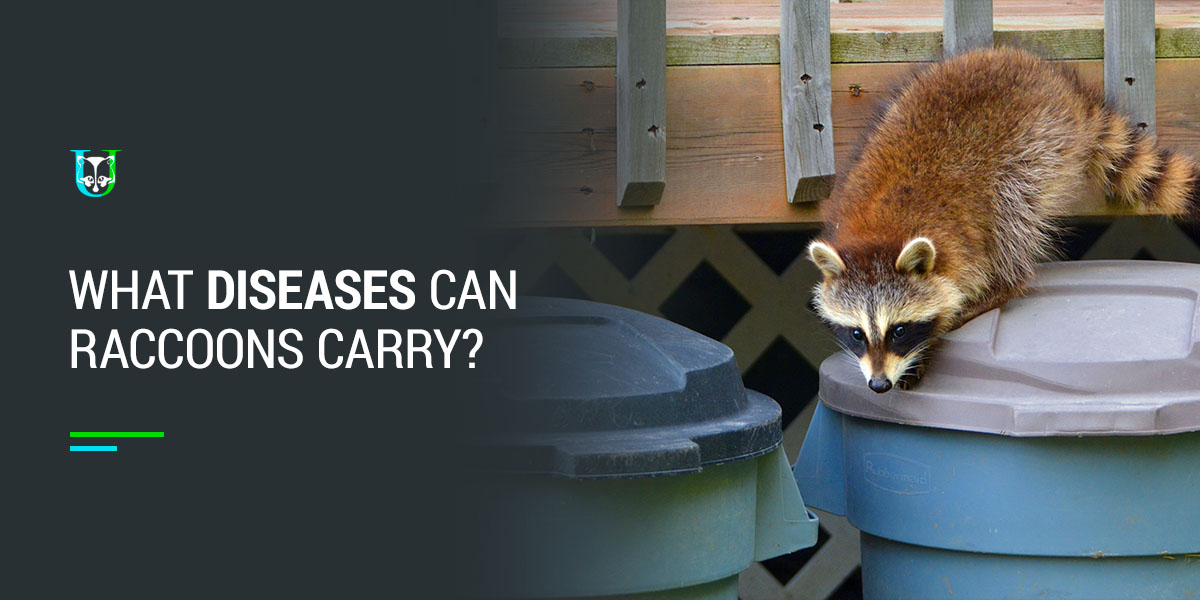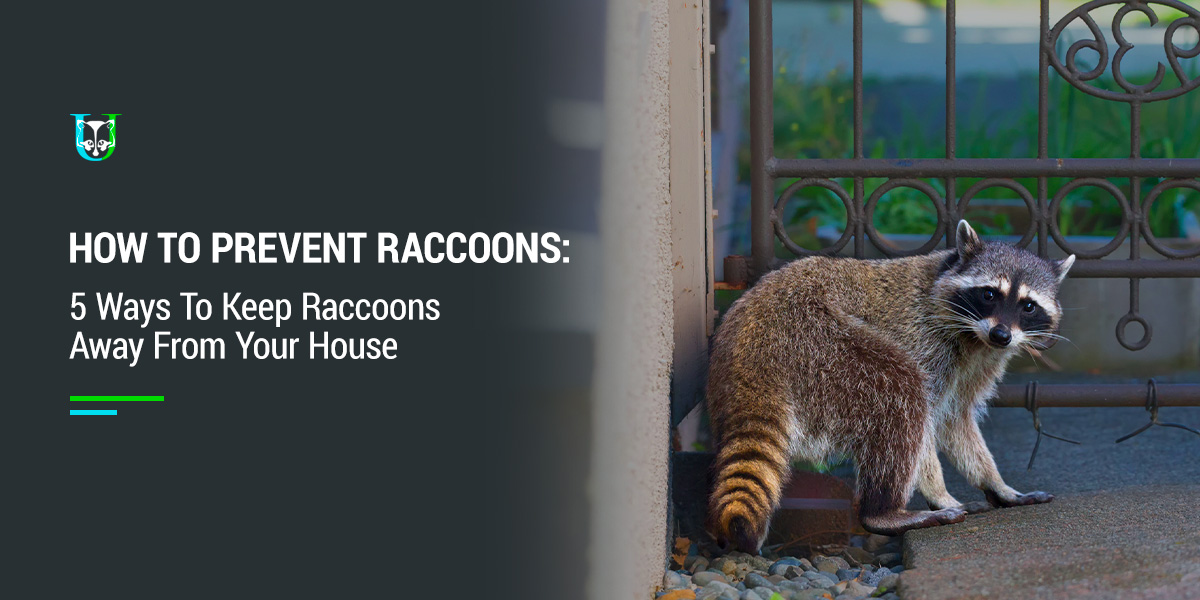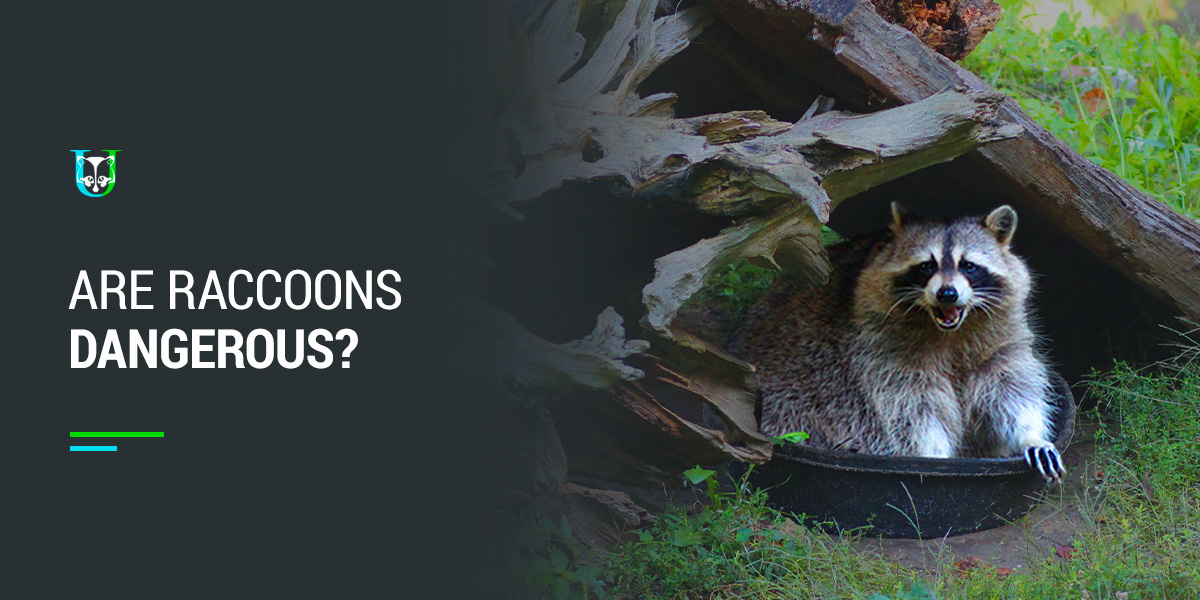
You can find raccoons in many city and suburban settings, but that doesn’t mean they’re safe to be around. These wild animals can pose a health risk. Even if a raccoon shows no signs of infection, many carry infectious diseases or parasites that can be transmitted to humans and animals.
Find answers to some of the most frequently asked questions about diseases known to occur in raccoons.
What Viruses, Bacteria and Parasites Do Raccoons Cause?
Most people are aware that raccoons can carry rabies. These wild animals also shed a host of viruses, bacteria and parasites that can result in infections or diseases in people. Here are some of the most common health hazards caused by raccoons.
Rabies
Raccoons are known carriers of the dangerous rabies virus, an infection that causes brain inflammation and other disturbing symptoms. Rabies is easily transmitted via bite, scratch or even contact with saliva.
Baylisascaris Procyonis, or Raccoon Roundworm
This parasite is found in the intestines of many raccoons. The organism sheds a considerable number of eggs into the raccoon’s feces. After a few weeks of incubation, the eggs develop into parasites that can infect humans and animals. If ingested, these parasites can move into bodily organs and cause serious damage.
Leptospirosis
This bacterial disease is carried in the urine of raccoons and other wild animals. Infection can occur due to water or soil contamination, leading to flu-like symptoms and potentially serious health problems.
Giardia
This protozoan parasite is also passed to humans and animals through raccoon feces. Giardia can cause severe gastrointestinal symptoms, including diarrhea, intestinal inflammation and ulcers.
Other Diseases
While the above infections are the most common, raccoons also carry a wide variety of other diseases, fungi and parasites that pose a risk. It’s always best to contact a physician if you’ve been exposed to raccoons or their waste.
Does Raccoon Feces Carry Disease?
Yes — exposure to a raccoon’s feces or urine can cause disease. In fact, contact with raccoon waste is one of the most common infection routes. You should not clean up raccoon latrines on your property without protection and appropriate training.
Can Raccoons Pass Diseases to Your Pets?
Pets tend to be more at risk for raccoon diseases than humans. Along with the infections listed above, dogs and cats are susceptible to the following and more:
- Canine distemper
- Feline distemper
- Parvo
Raccoon Removal Solutions From Urban Jungle Wildlife Removal
If local raccoons are encroaching on your property, don’t risk the health of your family or pets. Let the experts at Urban Jungle Wildlife Removal safely and effectively handle your raccoon problem. Contact us today to learn more.


